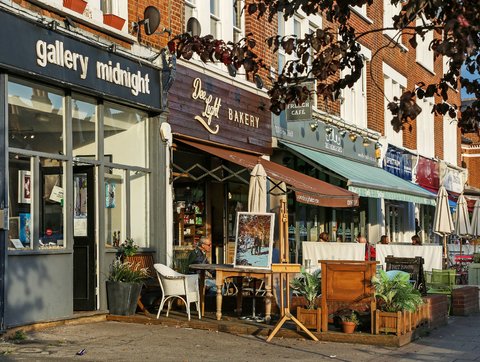Student accommodation: Is it a good investment?
Investing in student property in the UK has considerable appeal, especially in the face of strong, growing demand for student housing. This demand is spurred by rising university enrolment, a high number of international students, and a shortfall in on-campus accommodation. Yet, like any investment, it carries both advantages and potential drawbacks. Here's a closer analysis to weigh its merits and risks.
Pros of Investing in UK Student Accommodation
- Consistent Demand: The growing student population in the UK, including a substantial number of international students, contributes to steady demand for student housing, helping maintain high occupancy rates.
- Economic Resilience: Student accommodation often remains in demand during economic downturns, as education is prioritised, leading some to upskill or return to study.
- Attractive yields: Properties in high-demand areas like Bristol, Edinburgh, and Manchester have seen significant rental growth (11.3% in Bristol) and rental yields up to 18% above the general rental market, partly because student tenants typically pay for individual rooms.
- Potential for appreciation: With demand exceeding supply in many cities, property values may appreciate over time, especially in areas like Bristol and Bath, where student demand surpasses available housing.
- Longer leases: Tenancies often align with the academic year, providing stable, predictable cash flow and reducing vacancy-related costs.
Cons of Investing in UK Student Accommodation
- Seasonal Occupancy: Vacancies may arise during summer and holidays, requiring strategic financial planning to manage fluctuations in cash flow.
- Management Complexity: Managing student accommodations can be demanding due to higher tenant turnover, the need for maintenance between tenancies, and coordinating leases for individual tenants. Students may also need more maintenance, leading to higher upkeep costs.
- Regulatory Risks: Changes like the Renters' Rights Bill and other regulations in the student housing sector could affect leasing practices and safety requirements, adding unpredictability.
- Market Dependence: The success of student housing is closely tied to enrolment trends, university expansion, and on-campus housing development, so shifts in these areas could impact demand.
- Regional Variability: Demand for student housing varies by location; cities with growing student populations, like Bristol and Glasgow, generally perform well, while others may struggle.
Key Considerations for Investment
- Location Analysis: Properties near universities and amenities tend to perform well. Bristol, Bath, and Manchester are particularly attractive due to the high student demand and limited accommodation options.
- Amenities and Features: Ensuring the property has amenities like high-speed internet, study spaces, and proximity to cafes and stores increases its appeal to students.
- Exit Strategy: Plan an exit strategy, as student accommodation may present unique challenges upon resale. Areas with a high student-to-bed ratio (e.g., the national ratio is 2.1:1) may retain high demand over time.
Types of Investment Strategy
- New Developments: Creating new student housing can yield high returns but requires significant capital and involves higher risk due to construction and market conditions.
- Buying Existing Properties: Purchasing and renovating properties in established student areas may provide immediate income and value-adding potential.
- Single-Property Investment: This lower-risk approach is suited for beginners, allowing them to gain experience with fewer resources.
- Portfolio Approach: Diversifying across various locations or types of student accommodations (e.g., shared HMOs, studio apartments) can spread risk and yield a stable income.
Conclusion
Investing in student accommodation in the UK offers attractive opportunities with high rental yields, strong demand, and some insulation from economic downturns. However, it also requires a hands-on approach to property management and careful market research to avoid potential pitfalls like seasonal vacancies, regulatory changes, and demand fluctuations. For investors who are comfortable with the associated risks and management demands, student accommodation can be a rewarding addition to a property portfolio, especially in well-researched, high-demand areas.
Our Lettings New Business Partners have a wealth of expertise in this sector and have supported landlords in developing their student HMO portfolio as well as advising landlords dipping their toes in this profitable sector. Contact us to find out how we can help you.








